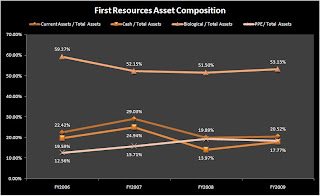striking workers at another Honda plant less than 100 miles away in Zhongshan marched in the streets on Friday and made a new demand: the right to form an independent labor union.In Singapore, workers have been intimidated and cowed into submission by the People's Action Party. They are told to be cheaper, better and faster. At the same time they have to accept competition from cheaper foreigners on their very own shores. And for the Singaporean men, they even have to sacrifice 2 years of their lives to protect the soil on which foreign labourers are working on. On top of that, Singaporean workers have to accept record housing prices, a congested transportation infrastructure, and even declining real wages.
“This is a remarkable development,” said Anita Chan, a labor expert at the University of Technology in Sydney. “Most strikes in China tend to be about not being paid or being mistreated. This was different. The workers were demanding very high salaries. And they want to elect union leaders democratically.”
They have to suck all of this in without a whimper or a sound. And they do.
Why?
Because they are pussies.
Singaporean workers would never dare to strike or speak out against the ministers. They would never dare stand up against an elite which pays itself millions of dollars in salaries while the aged uncles and aunties have to work in their 60s and 70s for subsistence pay.
Who says that democracy is not part of Asian values? Who says that strikes and democratically formed labour unions are not part of Chinese culture?
The Honda strikes in China have put an end to this utter nonsense.
Another NYT article reported:
Reports of the recent labor strikes have been unusually public here and have appeared largely uncensored in China’s state-run media.The PAP asks Singaporeans to be cheaper, better, faster. The PAP asks them to suck in the foreign cheap labour. Meanwhile,
Until now, the government has discouraged strikes and censored reports about labor unrest, apparently out of fear that the reports could fuel other strikes and lead to social unrest. But in the last few weeks, there have been reports — some in state newspapers — of several large strikes around the country.
This week, for instance, a local government-controlled union in the city of Shenyang has been negotiating with KFC, the fast-food giant, to secure a nearly 30 percent raise for workers.
Last Sunday, in another action, about 500 workers at Merry Electronics, a Taiwan-owned components maker, held a walkout that the company said was over a work dispute. Later that day, the company announced a 22 percent pay increase, though a spokesman said the raise was unrelated to the strike.
The Chinese government has also encouraged local governments to raise minimum wage standards, and even called on companies to treat workers with more dignity. - NYTSingaporeans vote in the PAP time and again with overwhelming majority - they keep in power the very hand that oppresses them. And they seem to love doing so.
The only possible reason is that this is because Singaporeans are cowards - sibei kia see!! Either that or they are bloody stupid to keep on believing Lee Kuan Yew's machinery which keeps them deceived with the propaganda straits times. Or they are masochists who love inflicting pain on themselves.
Which one is it???
Singaporean workers - time to wake up!!!!








